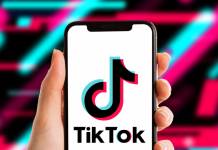ByteDance, the parent company of the popular short video app TikTok, recently faced scrutiny over its use of OpenAI’s technology. This issue brings to the forefront the intricate balance between innovation and ethical use of technology in the fast-paced world of AI development.
ByteDance clarified that only a small group of engineers used OpenAI API
Earlier, allegations surfaced that ByteDance was using OpenAI’s technology to create a competing service. This claim was met with a firm denial from ByteDance, stating their usage was in line with OpenAI’s service terms. They clarified that their use of the OpenAI API was part of an experimental model by a small group of engineers, which was never intended for public release.

The situation underscores a broader trend in the tech world, where the boundaries of collaboration and competition often blur. ByteDance’s statement emphasized their commitment to adhering to OpenAI’s terms, particularly the clause against using outputs to develop rival models. Despite this assurance, OpenAI temporarily suspended ByteDance’s access to its services, pending further investigation.
This incident sheds light on the competitive landscape of AI technology. Chinese companies, including ByteDance, have been striving to catch up with their global counterparts in the generative AI space. The emergence of OpenAI’s advanced models like GPT-3.5 and GPT-4 Turbo has set a high bar, intensifying the race for AI supremacy.
China’s burgeoning AI scene is not without its challenges. The country has witnessed a surge in the development of local large language models (LLMs), leading to concerns about resource wastage and the need for more originality in AI development. This situation calls for a thoughtful approach to innovation, where respecting intellectual property and fostering genuine advancement go hand in hand.
ByteDance’s case is a pivotal moment in the AI industry, highlighting the fine line between inspiration and imitation. It serves as a reminder that as technology advances, so too must the ethical standards guiding its use.
RELATED:
- BYD Song L electric SUV launched in China to take on the Tesla Model Y starting at $26,700
- Meizu 21 Pro could be launching soon, receives certification in China
- Get the Realme GT5 Pro phone on Giztop for $599
- Best Feature Phones with UPI support 2023: Nokia Dominates
(Via)






